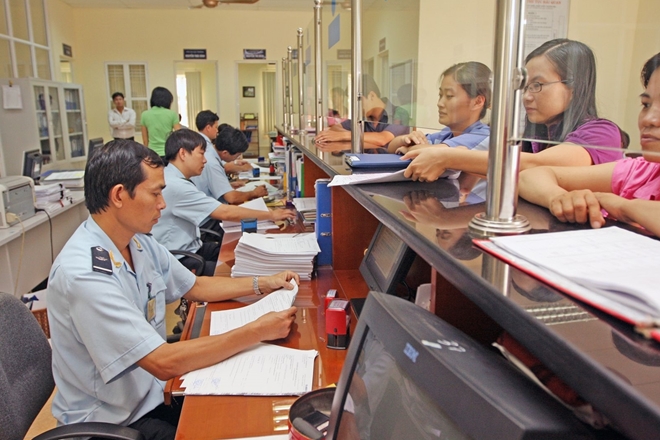Customs bill promotes new int’l trade opportunities
- Vietnamese customers among world’s most optimistic: Google survey
- Prevent commercial fraud in customs declaration
The new law, which was signed by the Prime Minister on August 23, aims to harmonize procedures for ships’ arrival, stay and departure from port and imposes an obligation on public authorities to establish systems for the electronic exchange of information.
 |
| Customs bill promotes new int’l trade opportunities. (Photo:Baohaiquan) |
There is a transitional period of three months with the new law making electronic transmission mandatory taking effect November 15, 2016, during which period paper and electronic documents would be allowed.
The new law aims at securing the highest practicable degree of uniformity in formalities and other procedures, including mandatory standards and recommended practices on formalities, documentary requirements and procedures that should be applied on arrival, stay and departure to the ship itself, and to its crew, passengers, baggage and cargo.
These include standardized forms for the maximum information required for the general declaration, cargo declaration, crew list and passenger list; and agreed essential minimum information requirements for the ship’s stores declaration and crew's effects declaration.
The law is aimed at ensuring the shipping industry’s present and emerging needs and serves to facilitate and expedite international maritime traffic. The objective is to prevent unnecessary delays to ships and to the persons and property on board.
The overarching goal of the new law is to encourage the use of a ‘single window’ concept, that will enable all the information required by public authorities regarding the arrival, stay and departure of ships, persons and cargo, to be submitted via a single portal without duplication.
The effect of the measure will put policies and procedures in place that will streamline Vietnam Customs procedures, lessen the cost to ship internationally and strengthen trade enforcement at the nation’s borders.
These changes will provide more opportunities for small and medium-sized businesses to participate in international exporting and importing, said Pham Duyen Phuong.
Pham Phuong, who is the deputy director of the Department of Information Technology and Customs Statistics noted that this will directly bear on increasing the competitiveness of small businesses with global companies, creating more job opportunities.
The potential impact this bill will have on easing the international trade process and opening great growth opportunities for Vietnam businesses should not be understated, continued Phuong.
Do Duc Tien, deputy director of Vietnam Maritime Administration, said, the new law will result in consistency of internal control systems within the network of maritime ports that will bear fruit in many areas.
Tien said some of the key benefits of the new law include – reducing paperwork burdens for low-value shipments by increasing the de minimis allowance and modernizing the customs systems and bringing other border agencies together in a ‘single window’ that supports advanced data and pre-clearance of shipments
It also allows for better enforcement of obligations in Vietnam trade agreements, intellectual property rights, and antidumping and countervailing duty laws as well as promotes small-business exports by improving export promotion coordination.

